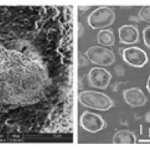
Households located in poor neighborhoods pay more for the same items than people living in wealthy ones, according to a new study in the Journal of Consumer Research. Author Debabrata Talukdar of Columbia University found that the critical factor in how much a household spends on groceries is whether it has access to a car.
According to the findings, those without access to cars—which are exclusively poor households, but include only 40 percent of poor households— pay higher prices for groceries than households with access to a car (whether wealthy or poor). Lacking mobility means consumers…



